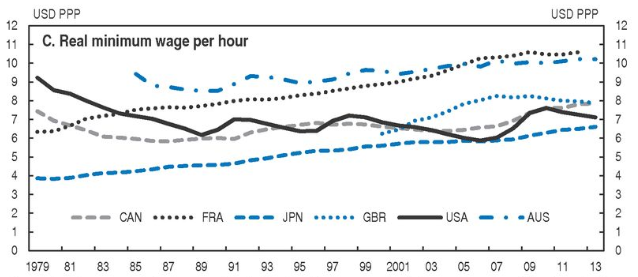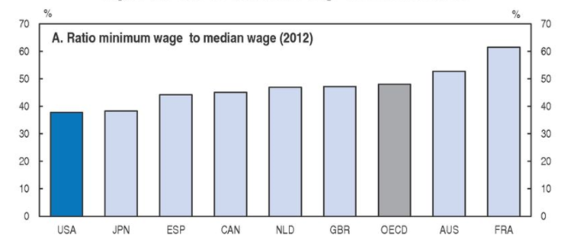I see where my CBPP colleague CC Huang has a nice post up summarizing one of the recommendations from a new Organization for Economic Co-operation and Development's (OECD) report on the U.S. economy.
The report touts the virtues of the EITC as a wage subsidy for low-income workers that both encourages work and reduces poverty. They go on to emphasize an EITC reform that we too have gotten solidly behind:
To make the EITC even more effective, the OECD suggests strengthening the credit for childless workers (including non-custodial parents) by expanding their credit and lowering the age eligibility threshold from 25 to 21. Since childless workers now receive little or no EITC, it's 'less effective at increasing employment and reducing poverty' among this group, according to the OECD.
In part because the EITC for childless workers is so meager, childless workers are the sole group that the federal tax system taxes into poverty.
The EITC is a rare anti-poverty program that gets a fair bit of love from both sides of the aisle. But to their great credit, the OECD goes a step further, making the important additional point that an EITC expansion "would be more effective if supported by a higher minimum wage."
Back to CC:
As we've explained, the EITC and federal minimum wage are complementary ways to support low-wage workers, not alternatives. One reason is that the EITC, by increasing the number of people seeking jobs in the low-wage sector, can put downward pressure on the wages that employers offer potential workers. A higher minimum wage helps offset that effect.
The OECD points out that the effects of minimum-wage increases on employment are 'uncertain' and recommends carefully monitoring the impact of any such increase. But it also notes, '[t]he value of the minimum wage has declined significantly in real terms over time' and '[r]elative to the median wage, the current federal minimum wage is well below the average statutory minimum wage in OECD countries.' [See first figure below; it's also low relative to the median wage: see second figure.]
So far, so good. But here's the clincher. The International Monetary Fund (IMF), an institution no one would mistake for wild-eyed econo-radicals, made much the same argument in their new U.S. report:
...given its current low level (compared both to U.S. history and international standards), the [US] minimum wage should be increased. This would help raise incomes for millions of working poor and would have strong complementarities with the suggested improvements in the EITC, working in tandem to ensure a meaningful increase in after-tax earnings for the nation's poorest households.
The quality and depth of the IMF's work has hugely improved in recent years, but still... for old hands like yours truly, reading this excerpt brought to mind the flying pig you see here.

This post originally appeared at Jared Bernstein's On The Economy blog.

